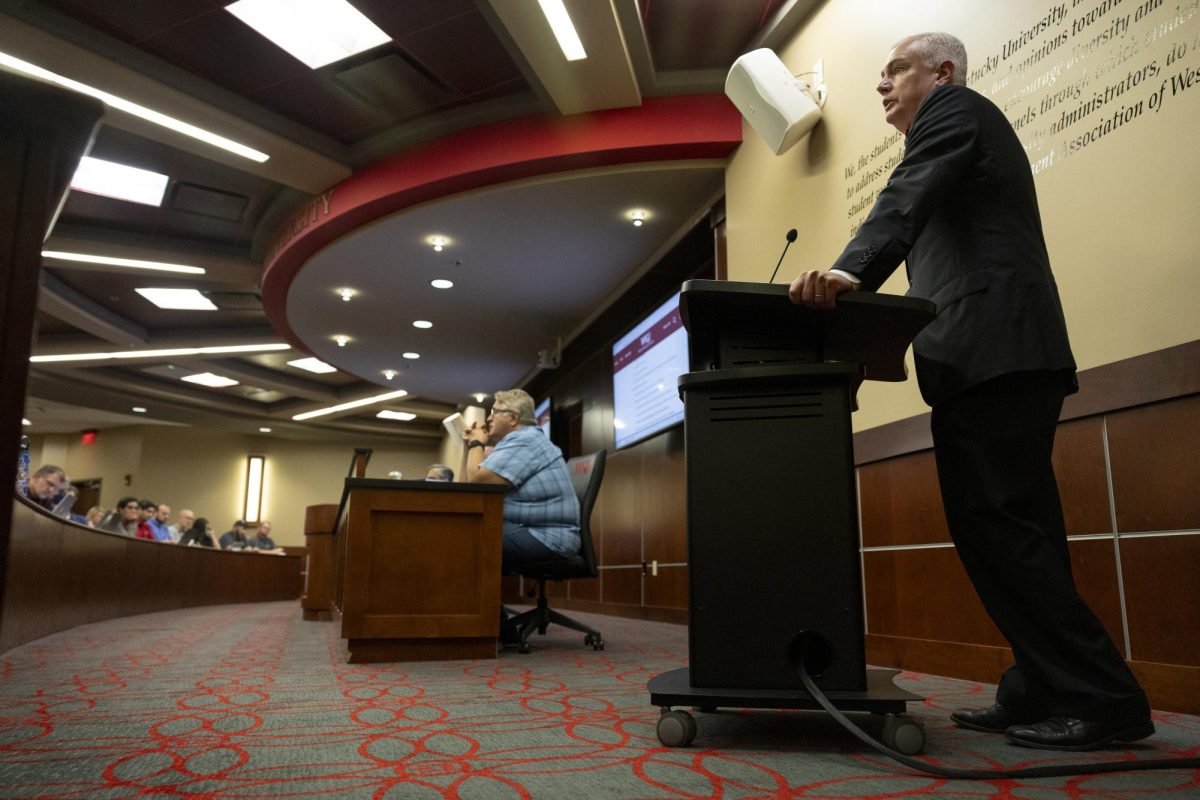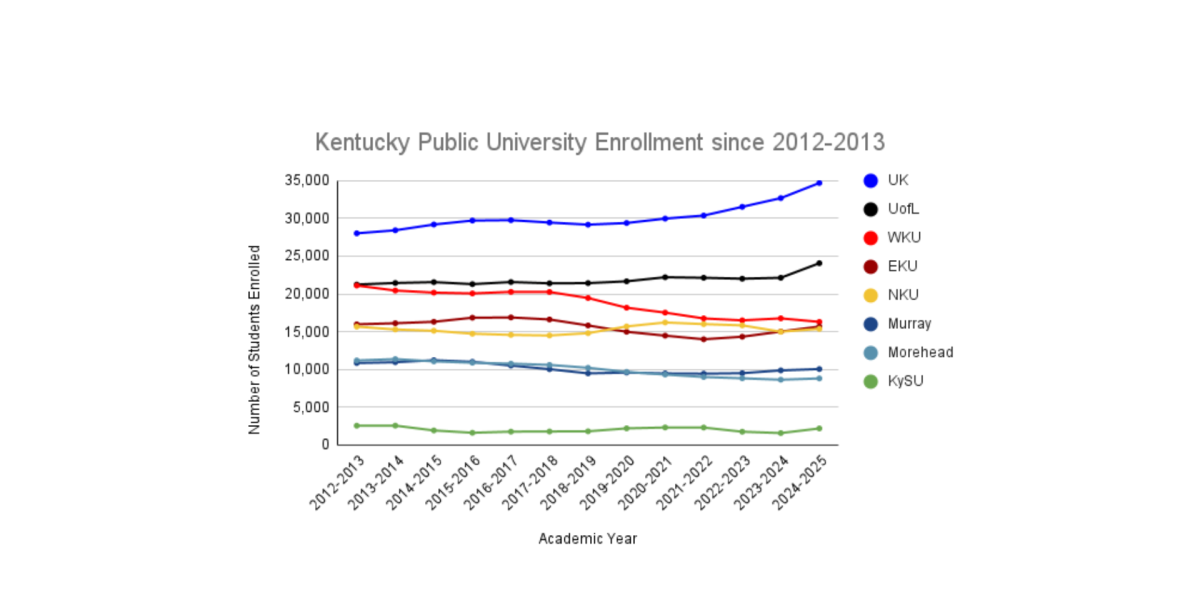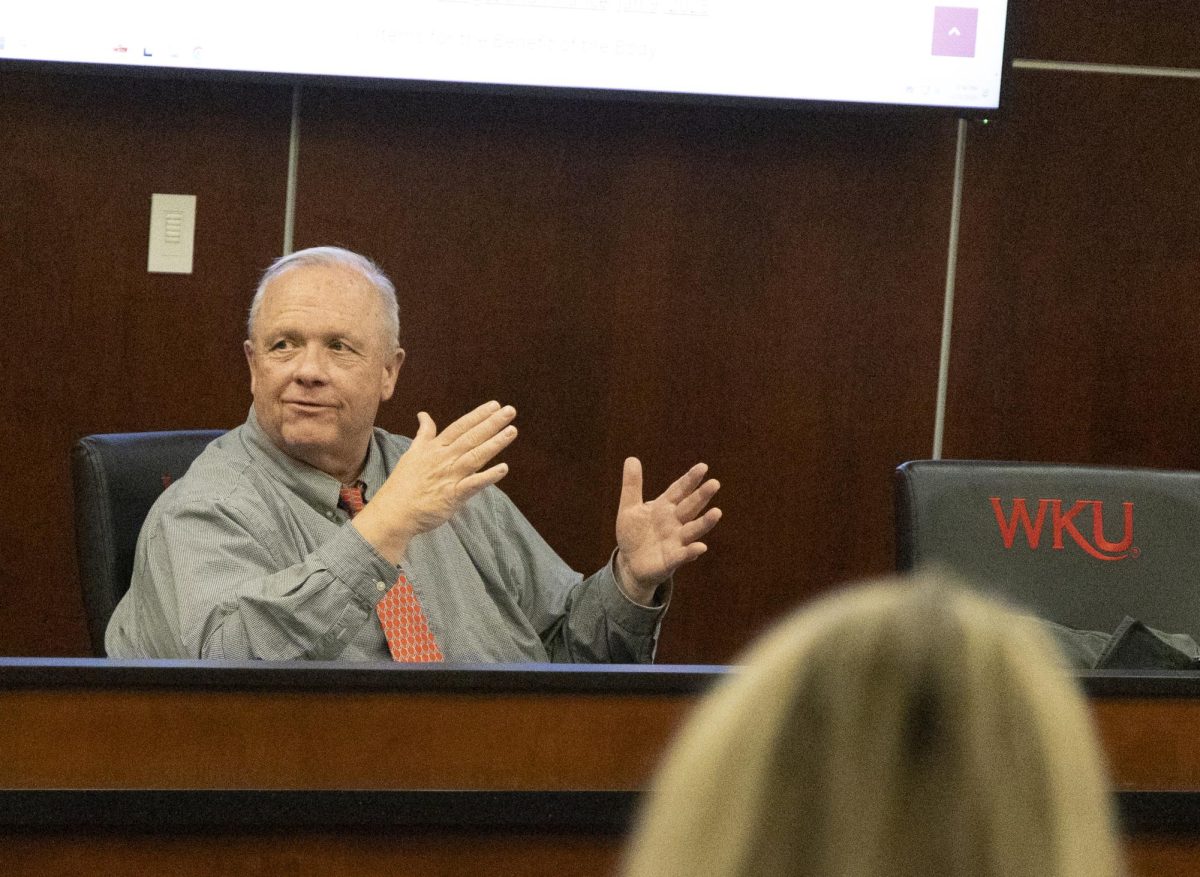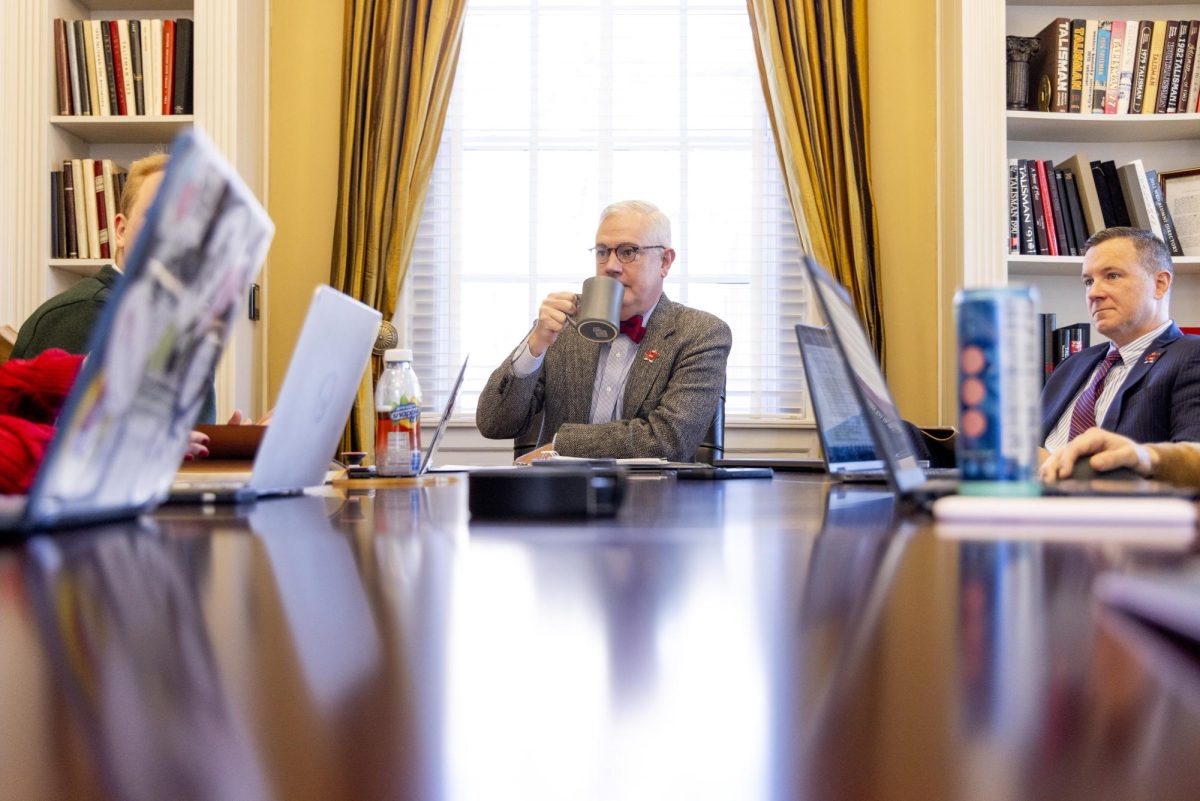WKU President Timothy Caboni answered pre-submitted faculty questions regarding compensation, the budget and more at the Faculty Senate’s first meeting of the semester on Thursday.
Speaking for over an hour, Caboni addressed faculty concerns about salaries, the 2024-25 operating budget, accountability for overspending areas such as Athletics and the university’s work to achieve R2 status.
Compensation
Caboni said several questions directed towards him were about faculty salaries.
Based on the university’s RAMP budget model, financial allocations within the colleges are distributed by the deans with input from department chairs, Caboni said.
“If you feel under-compensated, talk to your department chair,” Caboni said.
Caboni said the Budget Executive Committee is currently deciding how to allocate the 2% salary pool that was approved for this fiscal year. He recognized that “2% a year is not enough” yet said that across-the-board faculty salary increases like this “are not going to address our issues.”
A solution to this, Caboni said, is the implementation of merit-based salary increases.
“Every 2% salary increase costs us about $2.5 million just in salary, not benefits, not retirement, and for us to make a $2.5 million additional investment, we’ve got to find the resources somewhere,” Caboni said.
Caboni asked the senate to think about what they want to accomplish together and said he, the provost and the deans are “ready and willing” to work with faculty to progress the university.
“I want you to hear from me that I’m committed to you, committed to this place, and I’m proud of the work that we’re doing together,” Caboni said. “I thank you for sometimes your forbearance, for knowing that we’re not going to agree on everything, but for trusting that no one on my team and I never make a decision that we don’t think is in the best interest of the university.”
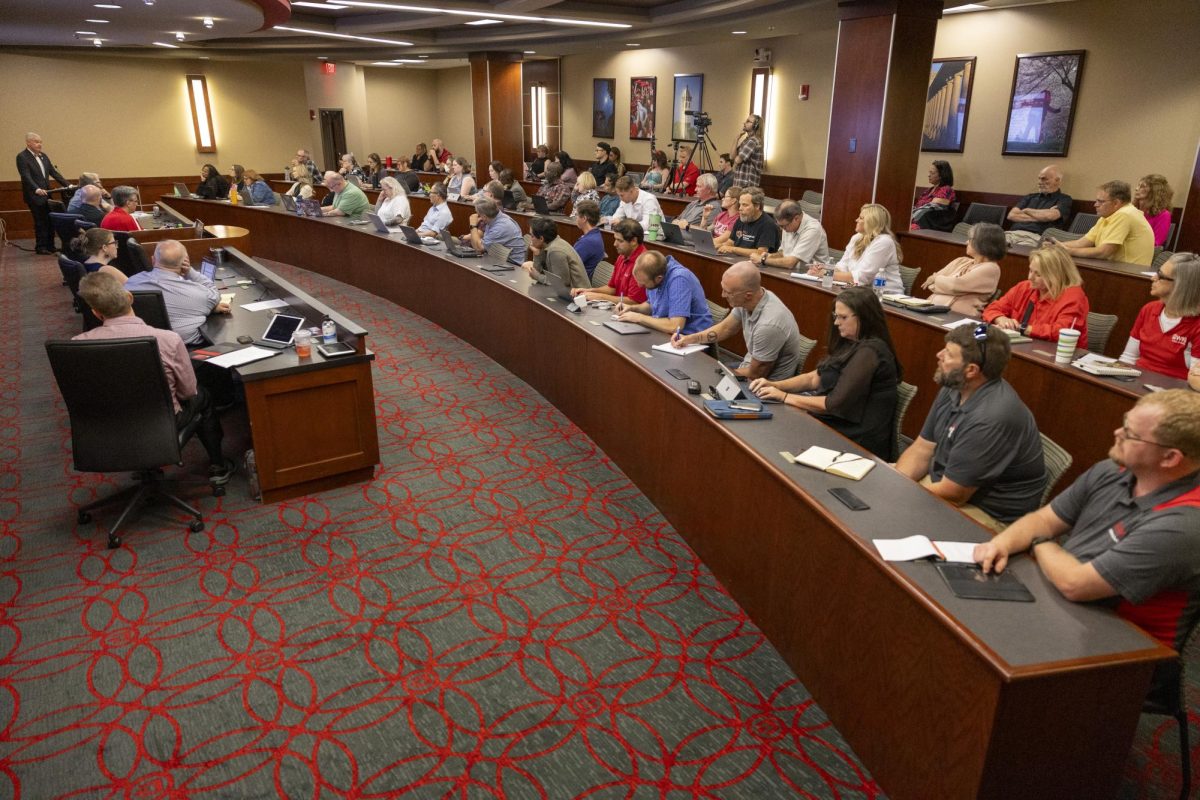
Budget and overspending
Caboni said the FY 2024-25 budget is “in a good spot,” noting a $4 million increase compared to the previous year’s budget.
“We are up $20 million in our budget in the past four years,” Caboni said. “I know it may not feel like that to you because we’re actually talking about budget realities in a pretty transparent, direct way.”
When asked why departments are being penalized for other units’ overspending habits, Caboni said departments aren’t being penalized for others’ overspending, and those who spend more than their budgets must pay the money back.
“If you’re over, what’s going to happen?” Caboni asked. “Well, you’re going to have to explain what happened… you’re going to explain what the plan is to fix it, rectify it, and not be over. And number three, you’re going to have to figure out how you’re going to pay that back.”
Caboni said that the university is dedicated to addressing budget concerns in a “transparent” manner. He said that the current budget-making process and the role of the Budget Executive Committee allow this transparency.
At the Staff Senate meeting on September 4, Caboni announced that Athletics, the College of Education and Behavioral Sciences and the department of Enrollment and Student Experience each overspent their fiscal year 2023-24 budget. Athletics presented to the Budget Executive Committee in a closed meeting the same day to address its overspending.
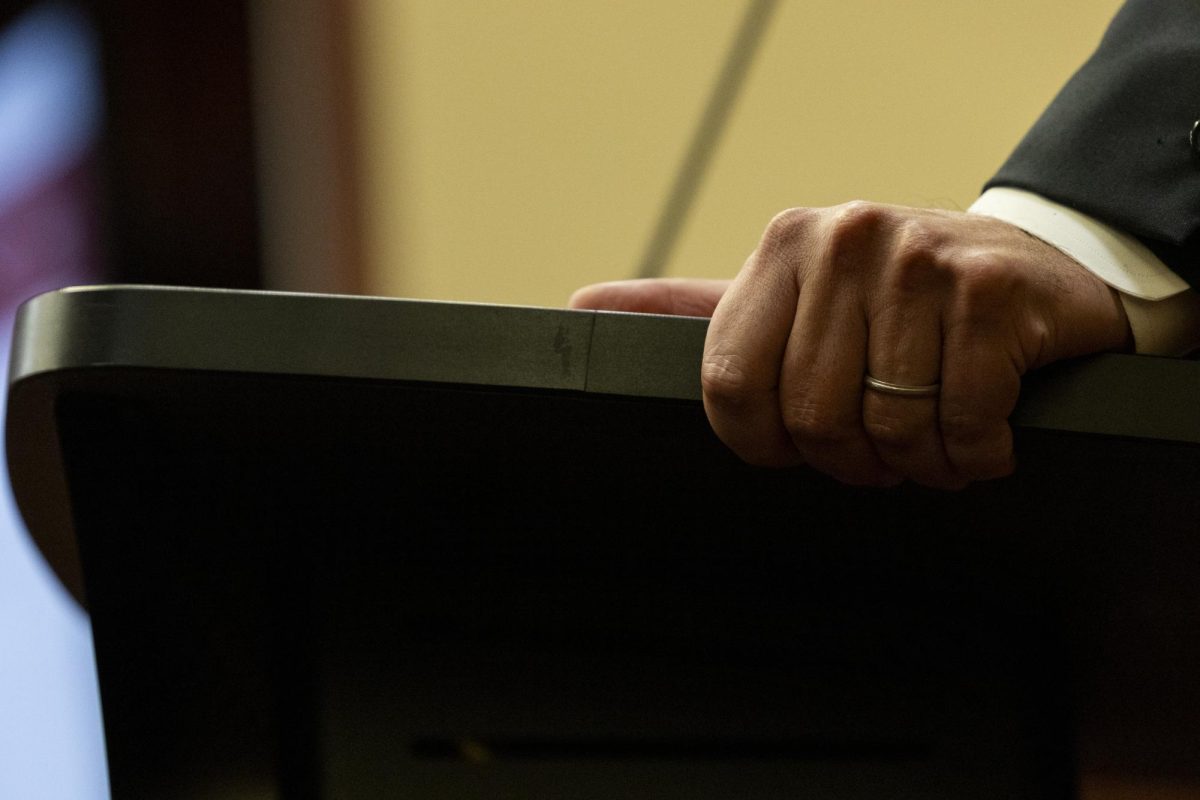
Graduate education and R2 status
Caboni spoke about his desire to see WKU achieve R2 status, which he said would be good for the university’s reputation and help expand research opportunities for students.
“That is a rich recruiting ground for us to both develop talent and identify folks who have the capacity to continue on past a master’s degree,” Caboni said.
Caboni also said college deans control graduate assistantship funds and have the “flexibility to grow the number of dollars there,” noting the need to “be intentional” and plan for grant-funded work.
“There are dollars available, we just have to be intentional about maximizing the opportunities,” Caboni said.
Also at the senate’s meeting, Caboni:
- Said there will not be an additional round of the Voluntary Separation Incentive Plan in January, and he told faculty to “not pass this one up” if eligible.
- Emphasized that the university’s healthcare plan “is competitive,” noting that the WKU has not increased faculty contributions to health insurance for five years.
- Addressed his presentation to the Interim Joint Committee on Education on Sept. 17 on the university’s ONE WKU program and diversity, equity and inclusion.
Content Editor Ali Costellow can be reached at ali.costellow453@topper.wku.edu.
News Reporter Cameron Shaw can be reached at cameron.shaw555@wku.edu.


